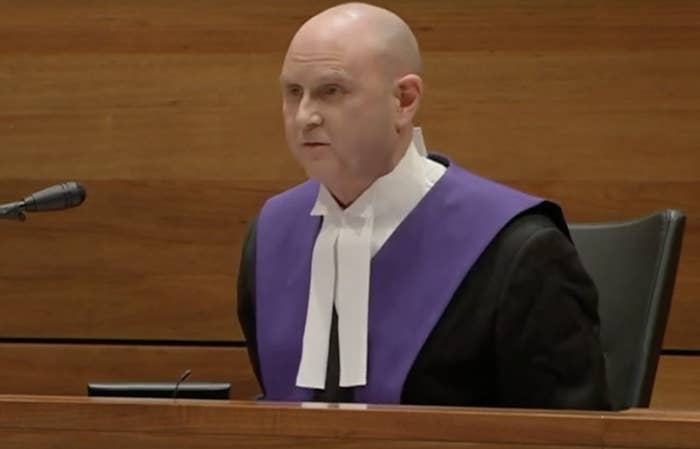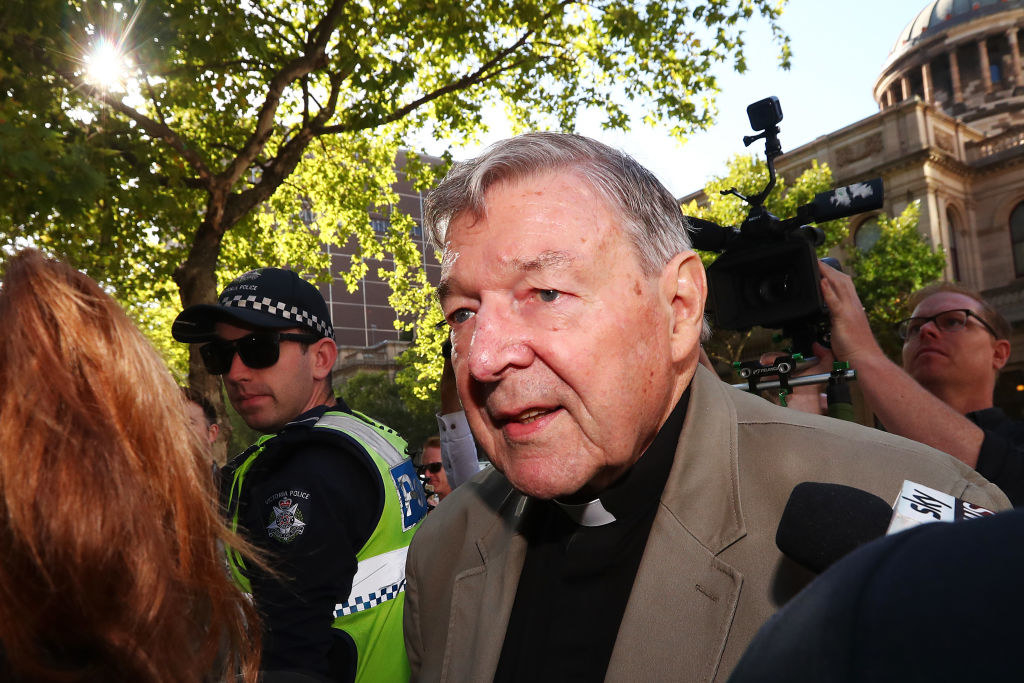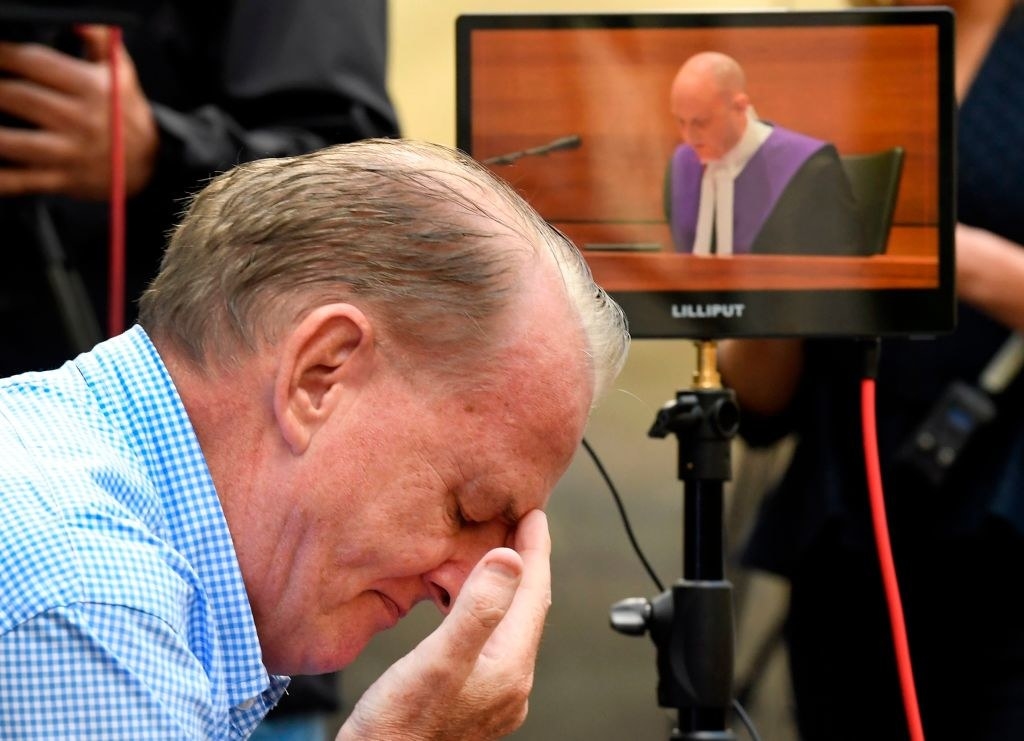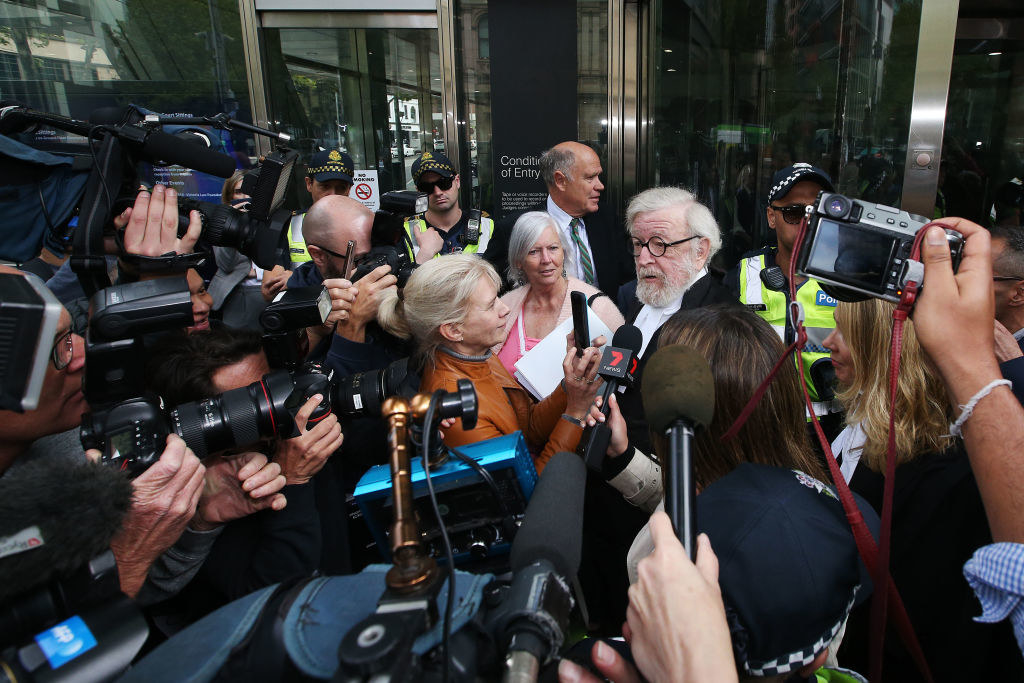
1. A one of a kind sentence
Kidd, 53, is chief judge of the Victorian County Court. He began his remarks by saying the Pell case was unlike any other.
"At the time you returned to Australia to face these charges you were one of the most senior figures within the Catholic Church, globally," he told Pell. He said there had been "extraordinary and widespread publicity and public comment" surrounding Pell and referenced the recent exposure of child sexual abuse in the Catholic church.
2. No scapegoating
Pell was convicted on one count of sexual penetration of a child, and four counts of indecent acts with, or in the presence of, a child.
His sentence was for this, and this only, said Kidd: "You are not to be made a scapegoat for any failings or perceived failings of the Catholic church. Nor are you being sentenced for any failure to prevent or report child sexual abuse by other clergy within the Catholic church."
3. “This sentence is not and cannot be a vindication of your trauma": a message to other child sexual abuse victims
Kidd delivered a message to people watching who had been abused as children in churches or institutions, saying Pell could not be punished for what was done to them.
"I recognise that you seek justice, but it can only be justice if it is done in accordance with the rule of law."

4. The details of what happened in the priest's sacristy 22 years ago
Pell was convicted of sexually abusing two 13-year-old choirboys. One of them, J, is now aged in his 30s and testified at trial, while the other, R, died in 2014.
Kidd said that the jury convicted Pell based on J’s account of what happened. He read out a summary of that evidence – now the facts of the case.
In late 1996, following Sunday mass, J and R had snuck away from the choir procession and entered the off-limits priest's sacristy, a room where church officials would prepare for services.
The boys began to drink sacramental wine, when Pell entered.
"You planted yourself in the doorway and said something like ‘you’re in trouble’ to the victims," Kidd said.
Pell pulled out his penis, grabbed R's head, and pushed it in front of his genitals, Kidd said. "R was squirming, struggling and flailing while this was occurring. J saw R’s face — R was terrified."
Pell then turned to J, and put his penis into J's mouth for about two minutes. "J was, to use his words, ‘freaking out’ when this happened. You were standing and J was pushed down, crouching or kneeling."
He then touched J's genitals and began to masturbate himself as he did so. "Once you stopped, J put his clothes back on, and J and R left the room. They eventually re-joined the choir.
"During the incident J and R were crying and sobbing. J and R called out but it was at a level of whimpering and whispering. At some point you told J and R to be quiet because they were crying."
More than a month later, Pell indecently assaulted J by pushing him up against a wall and briefly squeezing his genitals as he walked along a corridor that went past the sacristy.
5. Hearing from the victims
There were two statements: one each from J and R's father. Sometimes victim impact statements are read aloud in court, but neither J nor R's father wanted that to happen, so Kidd paraphrased them in his sentence.
J had reported a significant impact on his mental wellbeing, which had affected his life and in particular his relationships. R's father felt "shocked and upset" and that he had failed his son.
As R died in 2014, there was no statement from him. But Kidd said while it wasn't possible for him to quantify or articulate how the abuse impacted on R, "I have no doubt that it did in some way".
6. The "gravity" of Pell's offending
Part of sentencing involves a judge reaching an objective assessment of how serious the offending was compared to other instances of the same offence.
Kidd found that the sexual penetration of J, holding R's face to his penis, and touching J's genitals were all examples of serious offending.
He found Pell's moral culpability – the degree to which he can be held responsible for what he did – was high.
To reach these conclusions, Kidd considered a number of things.
7. "Brazen and forceful": What Pell actually did
"The first episode in the priest’s sacristy involved a brazen and forceful sexual attack upon the two victims. The acts were sexually graphic," Kidd said.
He said the second attack on J in the corridor was "very brief and spontaneous and involved contact over clothes", but went on to say it was "coloured" by the sacristy assault, and that Pell had had time to reflect on his previous abuse before deciding to do it again, "with what I consider to be a degree of physical aggression and venom".
8. He knew what he was doing
Pell’s lawyer, barrister Robert Richter, argued his client was not acting rationally when he committed these crimes. Kidd rejected this for several reasons, including: "There is no evidence before me from any witness at the trial that you were other than a fully functioning, competent, lucid and intelligent man, during the relevant period of time. To the contrary, there is evidence that on the day of the first episode, you had successfully delivered Sunday Solemn Mass, as archbishop, this being a public role requiring discipline and focus."

9. "You were the archbishop": Trust and power
Kidd found that Pell had abused his power as archbishop and breached the relationship of trust he had with the choirboys. He said Pell's crimes were both "breathtakingly arrogant", and that the cardinal had been confident that the two boys, on the lowest rung of a strict church hierarchy, would not complain.
Kidd also said the abuse occurred when Pell was still dressed in his robes from having just delivered the sermon at mass, while the children were still in their choirboy robes.
"The full weight of your authority and position of power must have been very obvious to your victims, and to you," Kidd said.
10. Aggravating factors, or, where that "plain vanilla" comment came from
At Pell's sentence hearing earlier this month, Richter told Kidd what Pell had done was "no more than a plain vanilla sexual penetration case where the child is not volunteering or not actively participating".
The remark quickly drew opprobrium and Richter later issued a comprehensive apology for the "wholly inappropriate" phrase.
He had said it as he argued there were no "aggravating factors" to Pell's crime, meaning elements that would have made it more serious, like grooming or threats to stay silent.
At the time, Kidd told Richter: "It must be clear to you that I am struggling with that submission."
In the end, Kidd said the fact those aggravating factors weren’t at play did not necessarily make the crime less serious.
11. Remorse
After assessing the gravity of Pell's offence, Kidd moved on to look at factors that might reduce the sentence.
Pell pleaded not guilty, which means he doesn't get a discount on his sentence for a guilty plea. He also hasn't shown any remorse for his crimes – another factor that can reduce a sentence – because he maintains he is innocent.
12. Old age, health, and "good character"
Kidd told Pell, who is 77, it was possible he may die in prison given his age and poor health.
"The fact is that you are of advanced years and are entering the last phase of your life. Like anyone in their late 70’s your health will decline in time," Kidd said.
"I am conscious that the term of imprisonment which I am about to impose upon you carries with it a real, as distinct from theoretical, possibility that you may not live to be released from prison. Facing jail at your age, in these circumstances, must be an awful state of affairs for you."
He also found Pell had been a person of "good character" since the offences 22 years ago, basing this on the fact Pell has an otherwise clean criminal record and the character references submitted to the court — including one from former prime minister John Howard.
13. No risk of re-offending
Kidd found Pell had effectively zero risk of re-offending because of his age, good character, lack of offending for 22 years, and also his notoriety and sex offender registration.

14. Did Pell get extra punishment from all the publicity?
Richter argued Pell had been subject to an "unprecedented level of public scorn and criticism", partly because of the actual crimes he was found guilty of, and partly over charges that were later dropped.
The enormous media scrums and placard-bearing protesters surrounding Pell as he went in and out of court were cited, with Richter arguing Pell had been "publicly pilloried".
"Finally, it was submitted that because of this kind of publicity and stigma, the resumption of your earlier life ... is now impossible," Kidd said.
The prosecutors actually agreed with this, saying the above warranted "a level of mitigation". Kidd said he took it into account.
15. A long time in solitary
Pell's lawyers argued that Kidd should give weight to the fact jail time will be more difficult for Pell than for the average prisoner.
"Like so many things to do with your case, cardinal Pell, I think your situation is somewhat unique," Kidd said. He referenced a report from the assistant commissioner of Corrections Victoria which assessed Pell at "immediate risk of serious threat" in prison and effectively said he would have to be housed in solitary.
The report said the risk to Pell "may be reduced in protection, so that in time he may be able to mix with a limited number of heavily vetted prisoners".
Again, Kidd said he took this into account.
16. Lights, camera, action
The sentence was broadcast around the world via a single camera in the jury box. It was fixated only on Kidd, and not permitted to swivel to show Pell, or the other 120-plus people in the courtroom.
Pell's lawyers argued the presence of the camera was effectively extra punishment and would make Pell's time in custody more difficult. Kidd disagreed.

17. General deterrence, punishment, denunciation
Punishment is only one factor judges refer to when sentencing. When he found Pell was unlikely to re-offend, Kidd set aside sentencing principles of protecting the community and specifically deterring Pell from committing future sexual abuse.
But there were remaining elements he needed to consider in arriving at the right sentence: general deterrence, punishment, denunciation.
These three are "very important" in cases that involve child sex offences, and a sentence must demonstrate the "grave consequences" of violating these laws, he said.
18. Sex offender registry
Another part of the sentence is that Pell must register as a sex offender for the rest of his life.
One of the most striking moments in court was when Pell, seated at the back of the courtroom, signed the registry.
19. Maximum sentence
Pell was sentenced on the basis of the maximum penalty at the time he committed the crimes, which was 10 years for each offence.
20. "Cardinal Pell, will you please stand? All things considered, I impose the following sentences upon you."
For pushing R's face down to his penis, Pell received two years and six months.
For forcing J to perform oral sex on him, four years.
For touching J's genitals, two years and six months.
For masturbating as he touched J, 15 months.
For grabbing J's genitals in the corridor, 18 months.
21. Six years
Usually, those sentences would be served at the same time (concurrently). But a judge can order the sentences, or parts of them, to be served one after the other (cumulatively).
Kidd ruled that one year of the 2.5 years Pell received for abusing R should be served cumulatively, to show there were two victims.
"Were I not to do this R would become a meaningless statistic," he said.
Kidd used the four-year sentence as his base, because it was the longest term of imprisonment and the most serious offence. On top of that, he ordered the following periods to be served cumulatively: one year for abusing R, four months for touching J, two months for masturbating, and six months for the corridor assault.
All in all – six years.
22. Three years, eight months non parole
Pell will be eligible for parole after three years and eight months. Kidd said this was a shorter period than usual because of Pell's age — to increase his chances of not dying in prison.
23. More than maths
Just before Pell stood up to hear his fate, Kidd used his global platform to say sentencing was far from an easy task.
“It is not a mathematical exercise,” he said, telling Pell there were factors in his case that favoured a more lenient sentence, and others that favoured a harsher one.
“In your case this complexity is exemplified by the fact that on the one hand I must punish and denounce you for this appalling offending,” he said.
"Yet, on the other hand, I am conscious of the heavy reality that I am about to sentence you, a man of advanced years, who has led an otherwise blameless life, to a significant period of imprisonment, which will account for a good portion of the balance of your life."
